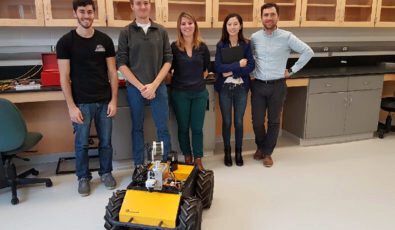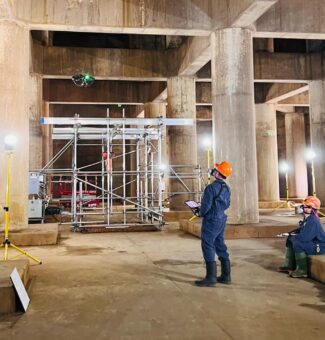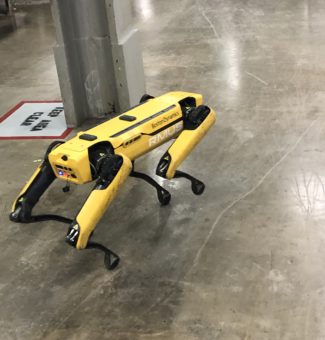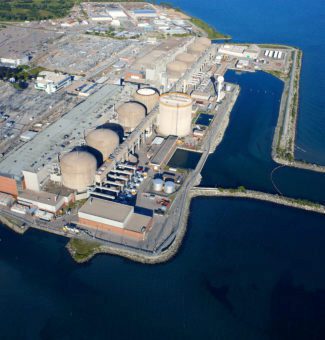Ontario universities helping to drive nuclear innovation
At the University of Waterloo, an intrepid team of grad students has been researching and developing autonomous driving robots to inspect the innards of a nuclear reactor.
Working with Clearpath Robotics, the students are building mobile robots equipped with non-contact sensors, radiation detectors, and high-definition cameras. The small rovers could provide detailed information on the condition of a nuclear reactor and reduce monitoring costs.

It’s just one of five projects OPG has initiated with Ontario universities to help drive nuclear innovation in the province. The company is tapping into bright, young minds to develop innovative solutions and technologies that could help with future nuclear waste management and decommissioning activities.
“We looked at this as an R&D investment and a perfect opportunity to gestate ideas,” said Don Jarron, Director of Decommissioning with OPG.
Working with the University Network of Excellence in Nuclear Engineering (UNENE), a non-profit alliance of Canadian universities, nuclear utilities, and research agencies, OPG is directly sponsoring nuclear research initiatives at five different universities over three years. Beginning in 2017, OPG has provided program funding to the University of Toronto, University of Western Ontario, Queen’s University, University of Ontario Institute of Technology, and the University of Waterloo.
“We have existing tooling we can use now, but we identified key areas in decommissioning and nuclear waste ripe for further innovation,” Jarron said. “If any one of these ideas takes off, it could improve safety, save money, and advance Canadian innovation in this field.”
Five to six graduate students at each school, under the guidance of some of Ontario’s best professors, are now tackling a specific project that could prove valuable during future safe storage and decommissioning of the Pickering Nuclear Generating Station, which was granted a 10-year operating licence from the Canadian Nuclear Safety Commission in August. The station will operate safely and reliably until the end of 2024, followed by safe storage activities, such as removal of fuel and water.
At the University of Toronto’s Institute for Aerospace Studies, students are working to develop new ways for networks of Unmanned Aerial Vehicles, or drones, to inspect and service nuclear structures so that they continue to remain safe over long periods of time.
Meanwhile, at Queen’s University, students are looking at a technique to filter tritium from heavy water using graphene oxide, which could prove useful for dealing with large volumes of tritiated heavy water during decommissioning.
And at Western University, grad students in the faculty of chemistry are working on a laser ablation technique that could remove layers of contamination from metal surfaces to decrease waste.
Subscribe and stay informed
Sign up to receive the latest news, project updates, and event information from OPG.


